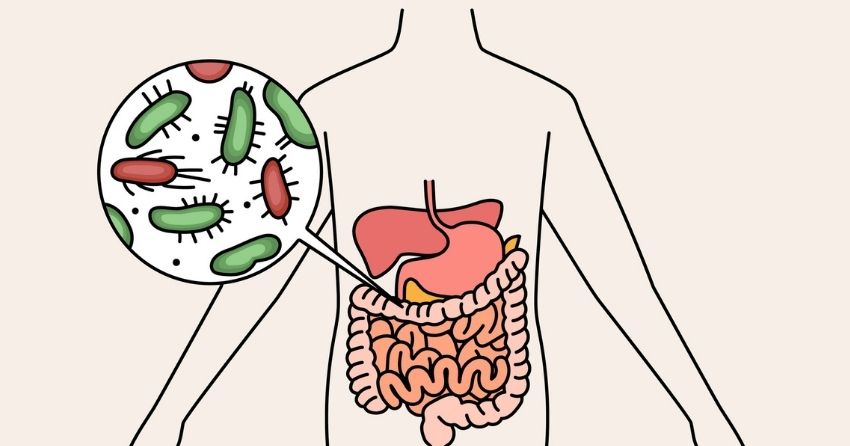Probiotics 101: The Friendly Microbes That May Improve Your Healthspan

Probiotics have gained fame through yogurt commercials for their ability to support digestive health. However, their benefits extend far beyond keeping you regular.
By enhancing the diversity of your gut microbiome, a diet rich in probiotics has been linked to a range of health benefits, including improved immune function, better mental health, reduced inflammation, and even a longer lifespan.
Here’s everything you need to know about probiotics, including what they are, their health benefits, and how to incorporate them into your daily routine.
What Are Probiotics?
Probiotics are living microorganisms – including yeast and bacteria – that benefit your health.
The most researched types of probiotics belong to the genera Bifidobacteria and Lactobacillus. When consumed through food or supplements, they can take root in your lower digestive tract, where they carry out functions to support digestive, immune, metabolic, and mental health.

However, probiotics are merely one part of a larger ecosystem of microbes within your digestive tract – commonly referred to as your gut microbiome. Each person’s microbiome is different, like a fingerprint, comprised of a mix of microbes unique to them. Some of these microbes, like probiotics, are helpful, while others are detrimental to health.
Research continues to reveal the importance of maintaining a thriving gut microbiome, rich in beneficial bacteria, in promoting overall health. This is where the benefits of probiotics shine!
Including probiotics in your diet helps maintain and restore a healthy balance of beneficial microbes within your gut. As these friendly organisms thrive, they crowd out harmful microbes. In turn, this has been shown to help:
- Improve absorption of essential nutrients and vitamins from foods.
- Protect against digestive disorders.
- Boost your immune system’s ability to fight off viruses and disease.
- Alleviate mental health symptoms.
- Aid weight management.
Beyond these benefits, scientists are beginning to draw connections between the unique mix of microorganisms in your gut microbiome and your likelihood of living a longer and healthier life.
Role of Gut Microbes in Longevity
Your gut microbiome is comprised of trillions of microorganisms. Factors including your environment, diet, genes, and medication use all impact the makeup of your unique microbial ecosystem. And, just like the rest of your body, your microbiome ages.
Starting at around age 40, scientists have observed distinct changes in people’s gut microbiomes. Aging is associated with a decrease in diversity within the gut microbiome. Additionally, the bacteria strains that dominate young digestive tracts take a back seat in later years while other unique microbes flourish.
Researchers are unclear about how the shift in types of microbial strains impacts health, with some believing this is a positive change that considers the evolving needs of our bodies over time.
What is clear is that people who maintain higher diversity within their microbiome appear to live longer and healthier lives.
A large observational study of 900 older adults examined the connection between their gut microbiome and overall health. The study found that individuals with a more diverse and unique microbiome maintained better physical capabilities and had a longer, healthier life while requiring fewer medications compared to those with lower gut microbiome diversity.
Another study connected the early onset of frailty among early adults with a lack of diversity within the gut microbiome.
Finally, a study of gut microbiota among Chinese and Italian nonagenarians (90-99 years old) and centenarians (≥100 years old) identified that these long-living people had high microbial diversity and a good balance of beneficial bacteria.
While these connections highlight the vital role of a diverse microbiome, there is still much to uncover about the specific types of microorganisms that promote longevity and the most effective strategies to enhance gut diversity as we age.
Nevertheless, adopting a diet that contains probiotic-rich foods and supports the growth of these beneficial bacteria is an excellent starting point.
How to Increase Probiotics In Your Diet
Probiotics are commonly found in fermented foods such as:
- Yogurt
- Fermented Pickles (found in the refrigerated section)
- Kimchi
- Miso
- Kombucha
- Sauerkraut
- Tempeh

Incorporating these foods into your diet will help populate your gut with health-promoting organisms. However, whether these organisms can thrive depends on other dietary factors.
Prebiotics are special fibers found in foods that fertilize healthy gut microbes. Pairing probiotic intake with foods rich in prebiotics can maximize the impact on your microbiome. Some foods high in prebiotics include:
- Banana
- Oats
- Barley
- Chicory root
- Artichokes
- Dandelion Greens
- Garlic
- Onions
In some cases, probiotic supplements can be a good option. A discussion with your doctor can help you determine if this is the right path for you. Keep in mind that not all supplements are created equal. Look for the following when considering a supplement:
- At least one billion colony-forming units (CFU). This ensures there are enough live organisms to make a difference.
- Strains within the genus of Lactobacillus, Bifidobacterium, Bacillus, or Saccharomyces boulardii. These are the most researched types of probiotics.
- Third-party testing. This ensures that the contents of the supplement have been verified.
Key Takeaways
The path to a long and healthy life may be through your gut. Probiotics play a crucial role in maintaining a healthy gut microbiome.
Look for ways to incorporate probiotic-rich foods or supplements in your diet to support the long-term health of the ecosystem within your digestive tract.
References:
Wilmanski T, Diener C, Rappaport N, et al. Gut microbiome pattern reflects healthy aging and predicts survival in humans [published correction appears in Nat Metab. 2021 Apr;3(4):586]. Nat Metab. 2021;3(2):274-286.
Jackson MA, Jeffery IB, Beaumont M, et al. Signatures of early frailty in the gut microbiota [published correction appears in Genome Med. 2016;8(1):21. Jackson, Matt [corrected to Jackson, Matthew A]]. Genome Med. 2016;8(1):8. Published 2016 Jan 29.
Deng F, Li Y, Zhao J. The gut microbiome of healthy long-living people. Aging (Albany NY). 2019;11(2):289-290.





